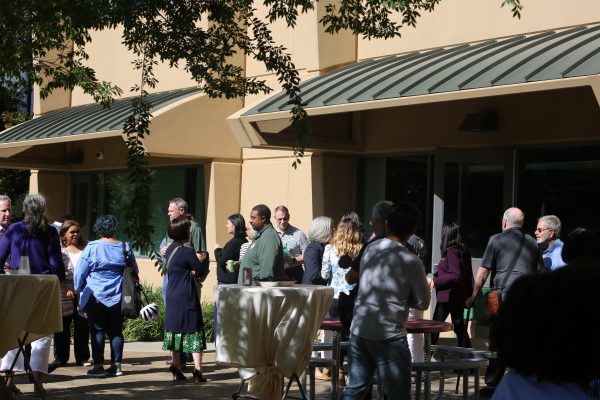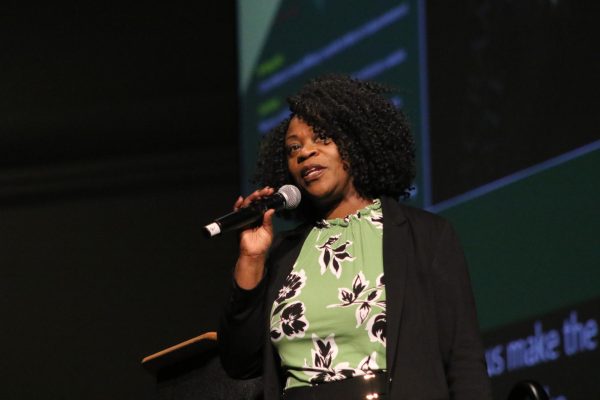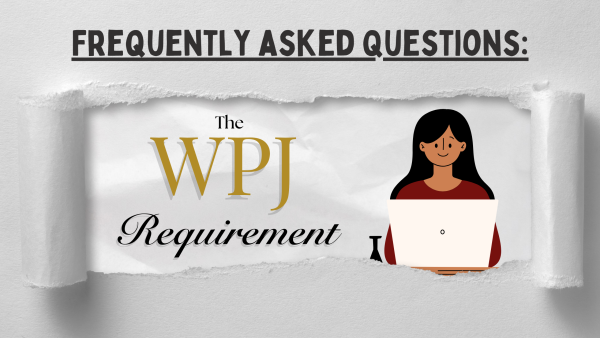Music devices present hearing problem
January 7, 2007
Hearing is a great gift. It allows people to hear so many wonderful things including laughter, movies and music. Hearing at times can be taken for granted-perhaps because few know the dangers of noise-induced hearing loss.
John Kiel Patterson from Louisiana filed a class action lawsuit Jan. 31 against Apple for this very reason. Patterson claimed that the iPod, which can produce sounds at 115 decibels, could lead to hearing loss.
What’s alarming is that people are consciously exposing themselves to loud volumes, some unaware of the permanent harm that can occur. According to the National Institute of Deafness and Other Communication Disorders, sounds louder than 85 decibels can cause damage to ears.Exposure to loud sounds can cause damage to hair cells in the ear and the hearing nerve. Common symptoms upon exposure include ringing in the ears and a short period of muffled hearing.
Sergei Kochkin, executive director of the Better Hearing Institute, said that research showed the number of people suffering from hearing loss doubled in the last 20 years. The number of people with hearing loss increased from 16 million in 1984 to 31.5 million in 2005. The institute also anticipates that over 40 million people will be effected by 2025.
“Irresponsible listening will have consequences later in life,” Kochkin said.
Everyday noises, including music from concerts or bars and even motorcycles and lawnmowers can have an affect on hearing. Kochkin recommended ear plugs to protect against loud noises.
“There is no one in the world with bionic ears,” Kochkin said. “If you have to shout then you are in a dangerous situation.”
Dr. David Sheaffer, an audiologist at UC Davis, said that while the iPod is getting all of the attention, permanent hearing loss from portable devices has been an ongoing issue since 1979 when Sony released the Walkman.
Sheaffer said if ears ring after listing to headphones then the user should give the ears time to recover. However, that may not be enough to preserve hearing. If ears ring, then the damage has already been done.
Repeated exposure can slowly cause enough damage to result in permanent hearing loss. With the portability and convenience of MP3 players and other listening devices, people have the ability to constantly listen to music.
Kacey Vue said she listens to her iPod for at least five hours about three times a week while she’s at work. The junior business major listens to her music at high volumes but said she has never found it difficult to hear or experienced a ringing afterwards. Vue admitted that she worries about the possibility of hearing loss.
“Of course, it doesn’t stop me though, which is terrible,” Vue said.
It can be difficult for an individual to track exactly how many decibels headphones project. The iPod displays sound levels by highlighting a digital bar, although not by decibels.
Normal conversation occurs at 60 decibels. One way to determine if the volume is too high would be if another person in the room could hear sounds from the headphones.
“It’s common sense,” Kochkin said. “If you can’t carry on a conversation with your headphones on, then the music is too loud.”
Sheaffer said he owns an iPod but makes sure to keep the volume low. He estimated that he sets his volume at 80 to 85 decibels. He tested his iPod Mini’s maximum decibel level and it ranged from 115 to 123 decibels.
He also said that hearing loss is attributed to more than just headphones. “We live in a loud society,” Sheaffer said.
Sheaffer plays the drums and even attends concerts where he wears ear plugs. Ear plugs can reduce the volume at a concert from 120 decibels to 80 or 85 decibels, still loud enough to enjoy.
Even a Sacramento Kings game can be dangerous for ears. Sheaffer previously measured the level of sound by Kings fans and found that the noise level was over 110 decibels at its peak. He recommended that fans wear ear plugs to the games.
Kochkin said 8 percent of college students have mild hearing loss. So maybe it wouldn’t hurt to turn the volume down a bit when listening to music or bringing a set of ear plugs to a concert or club.
“Most people who listen to music loud like listening to music and would want to continue listening to music in the future,” Sheaffer said.
Hearing loss is common to those under the age of 65. Taking the preventative measures can help preserve hearing. Sheaffer anticipated the number of people with hearing loss would rise.”I’ll never run out of work,” Sheaffer said.
For additional information on hearing loss, visit the Better Hearing Institutes’ Web site.
Linda Le can be reached at [email protected]

































































































































